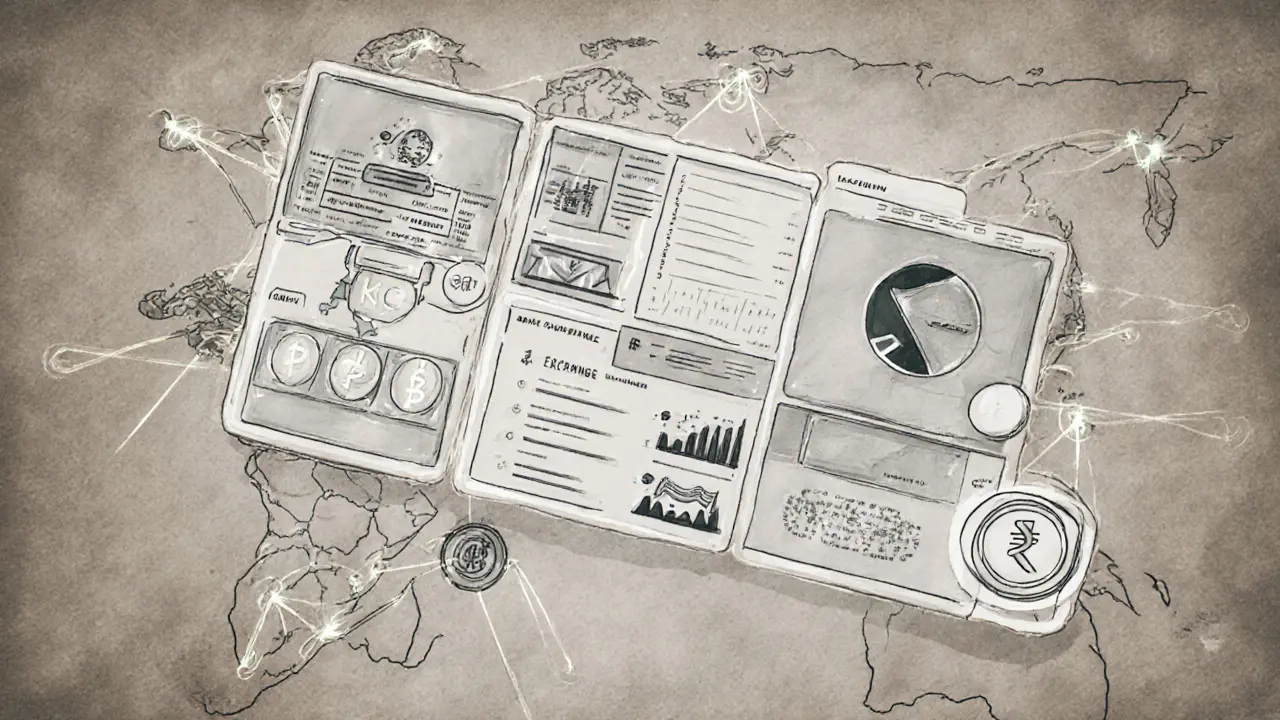Pakistan Crypto Regulation: What's Allowed, Blocked, and How Traders Adapt
When it comes to Pakistan crypto regulation, the official stance bans financial institutions from handling cryptocurrency transactions, but doesn’t make owning or trading crypto illegal for individuals. Also known as crypto restrictions in Pakistan, this gray area has forced users to find creative ways to buy, sell, and hold digital assets without touching banks. Unlike countries that outright ban crypto, Pakistan’s approach is more about control than prohibition—banks can’t process crypto payments, but people still use P2P platforms, local exchanges, and cash trades to keep going.
This setup created a thriving underground market. Traders rely on P2P Bitcoin Afghanistan, a model that’s also active in Pakistan, where users trade directly with each other using cash, mobile wallets, or bank transfers disguised as personal payments. This method avoids banking filters and keeps transactions hidden from regulators. The result? A price premium for crypto on local P2P platforms, sometimes 5-15% higher than global rates, because of the risk and effort involved. Meanwhile, crypto remittances Taliban, a concept born from Afghanistan’s extreme restrictions, mirrors what’s happening in Pakistan: people use crypto to send money across borders when traditional systems shut them out.
It’s not just about survival—it’s about access. Many Pakistanis use crypto to protect savings from inflation, send money home from abroad, or invest in assets that aren’t tied to the Pakistani rupee. Platforms like Mandala Exchange, a multi-chain crypto platform that supports fiat on-ramps and supports users in restricted regions, are popular because they let users deposit via local payment methods without needing a bank account. Even though the State Bank of Pakistan has repeatedly warned against crypto, enforcement is patchy. People aren’t getting arrested for holding Bitcoin—they’re getting pressure from banks that freeze accounts if they suspect crypto activity.
What’s clear is that regulation hasn’t killed crypto in Pakistan—it just moved it underground. The same forces that drive underground crypto premiums in China and Afghanistan are at play here: scarcity, risk, and demand. And while the government keeps talking about launching a digital rupee, the real innovation is happening in WhatsApp groups, local bazaars, and P2P apps where traders swap USDT for cash in parking lots. This isn’t rebellion—it’s adaptation.
Below, you’ll find real-world guides on how traders in restricted regions survive, what exchanges work best under pressure, how to spot scams in high-risk markets, and what happens when crypto meets strict financial controls. These aren’t theoretical ideas—they’re tactics people are using right now to keep trading, sending money, and staying financially independent despite the rules.
Pakistan Virtual Assets Regulatory Authority (PVARA) for crypto oversight: What you need to know in 2025
Pakistan's new PVARA authority now regulates all crypto activities. Learn how it works, who needs a license, and what this means for users and businesses in 2025.
VIEW MORE
